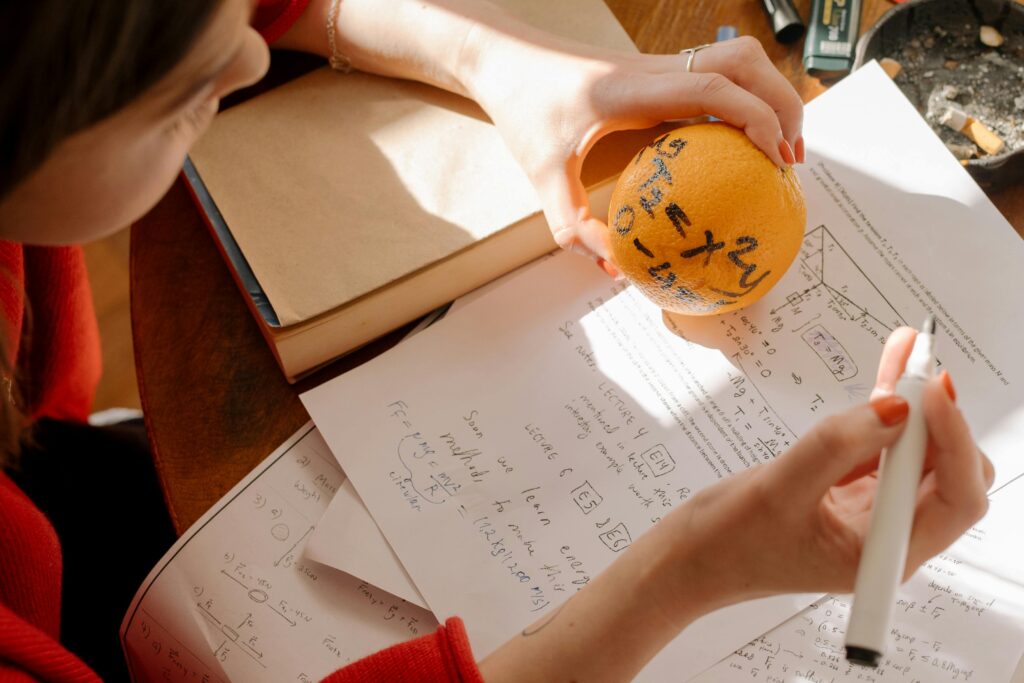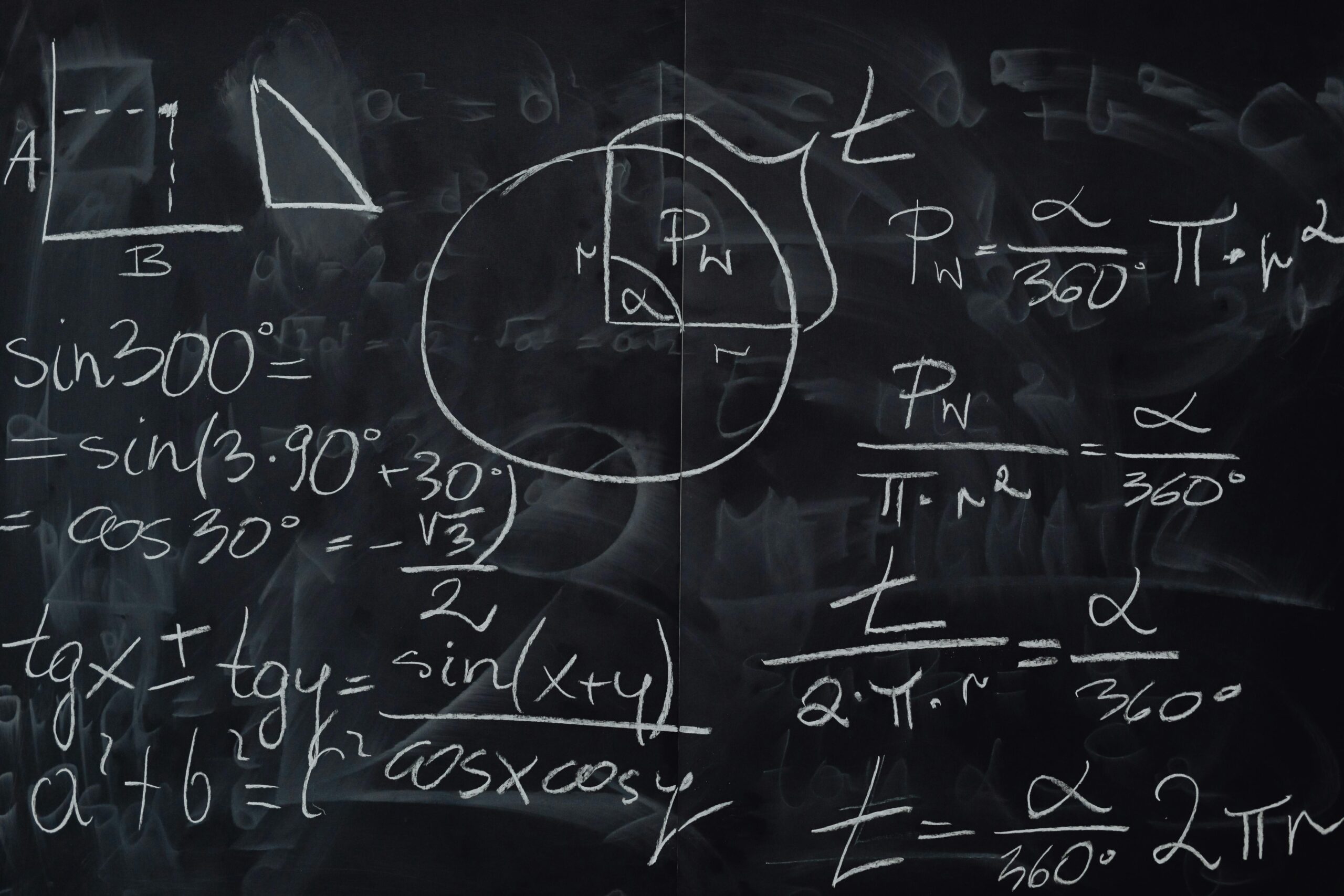Current State of Math Education in Canadian Schools: A Guide for Ontario Parents
Math Education: The Foundation for Future Success
If you’ve got school-aged kids, you probably wonder about the state and opportunities in math education in Ontario. Math is a critical subject that lays the foundation for many future career paths. But how well are Ontario schools preparing students in this crucial subject? You’ll be pleased to know that math education in Ontario is continuously evolving to meet the needs of our young learners. The curriculum is designed to develop critical thinking, problem-solving skills, and a solid understanding of mathematical concepts. Ontario is committed to ensuring that students not only learn math but also enjoy it and see its real-world applications.
Innovative Approaches to Teaching Math
Ontario schools are embracing innovative approaches to make math more engaging and accessible for students. Traditional methods of teaching math with rote memorization and repetitive drills are being replaced with more interactive and practical techniques. Teachers are using hands-on activities, real-life problem-solving scenarios, and technology to help students understand mathematical concepts better. For instance, many classrooms now utilize math games, apps, and online resources that make learning math fun and interactive. This shift towards a more dynamic and student-centered approach helps keep your child interested and motivated to learn math.
Support for Diverse Learning Needs
Ontario’s math education system recognizes that students have diverse learning needs and paces. To accommodate this, schools provide various support systems to ensure that all students can succeed in math. Special education programs, math tutoring, and extra help sessions are available for students who need additional support. Teachers are also trained to differentiate instruction, providing different pathways for students to understand and master math concepts. This inclusive approach ensures that whether your child is a math whiz or finds math challenging, they can receive the support they need to thrive.
Parental Involvement: A Key to Success
You, as a parent, play a vital role in your child’s math education. Ontario schools encourage parental involvement in various ways. Schools provide resources and tools that you can use at home to support your child’s math learning. You can access online portals with practice problems, instructional videos, and progress tracking. Additionally, regular communication with your child’s teacher can help you stay informed about their progress and areas where they might need extra help. By being involved, you can make a significant difference in your child’s attitude towards math and their overall success.
Real-World Applications of Math
One of the exciting trends in Ontario’s math education is the emphasis on real-world applications. Teachers strive to show students how math is used in everyday life and various careers. This approach helps students see the relevance of what they are learning and how it applies beyond the classroom. Projects that involve budgeting, planning, and problem-solving in real-life contexts are common. For example, students might work on projects that involve planning a trip, creating a budget, or designing a simple structure. These activities help students understand the practical uses of math and its importance in daily life.
Continuous Improvement and Professional Development
Ontario is committed to continuous improvement in math education. The province regularly reviews and updates the math curriculum to ensure it meets current educational standards and best practices. Professional development opportunities are provided for teachers to keep them up-to-date with the latest teaching strategies and technological tools. These training sessions help teachers improve their skills and stay motivated to provide high-quality math education. This ongoing commitment to improvement ensures that Ontario’s math education system remains robust and effective.
The Future of Math Education in Ontario
Looking ahead, the future of math education in Ontario seems bright. With a focus on innovation, inclusivity, and real-world applications, students are being equipped with the skills they need for the future. The integration of technology and modern teaching methods is making math more accessible and enjoyable for students. As Ontario continues to invest in its education system, you can be confident that your child is receiving a quality math education that prepares them for whatever path they choose.

Areas Needing Improvement to Better Prepare Students for International Competitions
Enhancing Problem-Solving Skills
If your child is aiming for international math competitions, problem-solving skills are crucial. While Ontario schools provide a good foundation, there’s room for improvement. You can help by encouraging your child to tackle challenging math problems at home. Competitions often feature complex problems that go beyond the regular curriculum. By exposing your child to these types of problems, you can help them develop critical thinking and analytical skills. There are plenty of resources, like advanced math books and online problem sets, that you can use to make this practice enjoyable and rewarding.
Fostering a Competitive Spirit
Competitions require not just knowledge but also a strong competitive spirit. You can nurture this in your child by participating in local and regional math contests. These smaller competitions help students get used to the pressure and excitement of competing. They also provide a great platform for your child to test their skills against peers. Celebrating small victories and learning from losses will help build resilience and determination. Remember, the goal is to make them comfortable with the competitive environment while keeping the experience fun and engaging.
Encouraging Team Collaboration
Many international competitions involve team events where students must work together to solve problems. Teamwork is a skill that isn’t always emphasized in regular math classes. Encourage your child to join math clubs or groups where they can work on problems collaboratively. This not only helps them learn from others but also teaches important communication and cooperation skills. Organizing group study sessions or math game nights at home can also be a fun way to practice teamwork. The ability to work well with others is a significant advantage in any competition.
Developing Time Management Skills
Time management is essential for success in timed competitions. You can help your child improve this skill by practicing under timed conditions. Set a timer for practice problems and gradually reduce the time allowed as your child improves. This helps them get used to working quickly and efficiently. Additionally, teach them strategies for managing their time during a competition, like prioritizing easier problems and returning to harder ones later. Good time management can make a huge difference in a competitive setting, helping your child perform at their best under pressure.
Expanding Mathematical Knowledge
International competitions often cover topics that go beyond the standard curriculum. Encourage your child to explore advanced mathematical concepts and theories. This might include subjects like number theory, combinatorics, and advanced geometry. There are many resources available online, including video tutorials, advanced textbooks, and interactive math platforms. By broadening their mathematical knowledge, your child will be better prepared for the diverse and challenging questions they might encounter in competitions.
Building Confidence and Reducing Anxiety
Confidence plays a significant role in your child’s performance during competitions. Help them build confidence by providing plenty of positive reinforcement and support. Celebrate their successes and help them learn from their mistakes in a constructive way. You can also teach relaxation techniques, such as deep breathing or visualization, to help manage competition anxiety. A confident, relaxed mind performs better under pressure. By focusing on their strengths and maintaining a positive attitude, you can help your child approach competitions with confidence.
Access to Specialized Training
Access to specialized training can make a big difference in preparing for international competitions. Look for programs or camps that offer advanced math training specifically geared towards competition preparation. Many universities and organizations offer summer programs or weekend workshops. These provide an opportunity for your child to learn from experts and interact with like-minded peers. If attending in-person programs isn’t feasible, there are also online courses and webinars available. Investing in specialized training can give your child a competitive edge and boost their confidence.
Utilizing Technology and Resources
Technology can be a valuable tool in preparing for math competitions. There are numerous apps, websites, and online platforms that offer practice problems, tutorials, and mock tests. Encourage your child to use these resources to supplement their learning. Online forums and communities can also provide support and motivation. These platforms allow students to discuss problems, share strategies, and learn from each other. By making the most of available technology, you can help your child enhance their skills and stay engaged in their preparation.
The Role of Teachers and Mentors
Teachers and mentors play a crucial role in preparing students for international competitions. Stay in touch with your child’s math teacher and discuss their goals. Many teachers are willing to provide extra support or resources for students aiming for competitions. Finding a mentor who has experience in math competitions can also be incredibly beneficial. A mentor can offer guidance, share strategies, and provide encouragement. Whether it’s a teacher, a coach, or an older student, having a mentor can make a significant difference in your child’s preparation journey.
Preparing your child for international math competitions involves more than just regular classroom learning. By focusing on areas like problem-solving skills, competitive spirit, teamwork, time management, and specialized training, you can help your child succeed. Remember, your support and encouragement are key to their confidence and motivation. With the right preparation and a positive mindset, your child can excel in international math competitions and develop a lifelong love for mathematics. So, let’s embrace this exciting journey together and watch our young mathematicians shine!

Opportunities for Enhancing Math Education Through Technology and Innovative Teaching Methods
Embracing Technology in the Classroom
Have you noticed how kids today are glued to their devices? Well, why not use that to our advantage? Integrating technology into math education can make learning more engaging and effective. For example, many educational apps turn math into a game, making it fun for kids to practice. These apps provide instant feedback, which helps students understand mistakes and learn faster. By incorporating tablets and computers into lessons, teachers can offer a more interactive and personalized learning experience. Plus, technology can help track progress, allowing teachers to tailor instruction to each student’s needs.
Online Resources and Interactive Tools
You’ve probably seen how the internet is a treasure trove of educational resources. Websites like Khan Academy offer free video lessons and practice problems on various math topics. These resources can supplement classroom learning and provide extra help at home. Interactive tools, such as virtual manipulatives, allow students to explore math concepts visually and hands-on. This can be especially helpful for visual and kinesthetic learners. Using these tools, your child can build a strong foundation in math while having fun and staying engaged.
Innovative Teaching Methods
Innovative teaching methods are transforming how math is taught in Ontario schools. One popular approach is the flipped classroom model. In a flipped classroom, students watch instructional videos at home and do “homework” in class. This allows teachers to spend more time helping students with difficult concepts and less time lecturing. Another method gaining traction is project-based learning, where students work on real-world projects that require math skills. This approach makes math more relevant and shows students how it applies to everyday life. By using these methods, teachers can create a more dynamic and effective learning environment.
Personalized Learning with Technology
Every child learns differently, and technology can help cater to these individual needs. Adaptive learning software adjusts the difficulty of problems based on your child’s performance, ensuring they are always challenged but not overwhelmed. This personalized approach can help your child master math concepts at their own pace. Many programs also offer detailed progress reports, so you and your child’s teacher can track improvement and identify areas needing extra attention. Personalized learning makes math education more effective and enjoyable for your child.
Gamification of Math Education
Kids love games, so why not turn math into a game? Gamification involves using game elements, like points and levels, to make learning more engaging. Many educational apps and websites use gamification to motivate students and make learning fun. For example, students might earn points for completing math problems and advance to higher levels as they improve. This approach encourages kids to practice more and develop a positive attitude toward math. By making math feel like a game, you can help your child stay motivated and excited about learning.
Collaborative Learning with Technology
Technology can also facilitate collaborative learning, allowing students to work together even when they’re not in the same place. Online platforms enable students to collaborate on projects, discuss problems, and share ideas. This fosters a sense of community and helps students learn from each other. Teachers can also use these platforms to create interactive lessons and group activities. By encouraging collaboration, technology helps students develop important communication and teamwork skills while enhancing their understanding of math concepts.
Using Virtual Reality in Math Education
Virtual reality (VR) is an emerging technology with exciting potential for math education. VR can create immersive learning experiences that make abstract math concepts more concrete. For example, students can explore geometric shapes in a 3D environment or visualize complex graphs and functions. This hands-on, interactive approach can help students better understand difficult concepts and retain information longer. While VR is still relatively new in education, its potential to transform how math is taught is immense. By staying open to new technologies, you can help your child benefit from cutting-edge learning tools.
Supporting Teachers with Professional Development
To effectively integrate technology and innovative methods, teachers need ongoing professional development. Many school districts in Ontario offer training sessions and workshops to help teachers stay up-to-date with the latest tools and strategies. By supporting teachers in this way, schools ensure that your child receives a high-quality education that leverages the best practices in math instruction. Encouraging teachers to continue learning and growing benefits everyone, especially the students. You can also support this effort by advocating for professional development opportunities in your child’s school.
Encouraging a Growth Mindset
A growth mindset, the belief that abilities can be developed through effort and learning, is crucial for success in math. Technology and innovative teaching methods can help foster this mindset by providing students with challenging yet achievable goals. Interactive and adaptive tools offer immediate feedback, allowing students to see their progress and understand that mistakes are part of the learning process. By encouraging a growth mindset, you can help your child develop resilience and a love for learning that will serve them well in math and beyond.

Canada’s Strategy for Selecting and Training IMO Teams
The Road to the IMO: A Journey Begins
Is your child a math enthusiast with dreams of competing internationally? Canada’s strategy for selecting and training its International Mathematical Olympiad (IMO) teams is both rigorous and rewarding. The journey begins with the Canadian Open Mathematics Challenge (COMC), open to students across the country. This initial competition helps identify students with exceptional mathematical talent. High scorers on the COMC are invited to participate in the Canadian Mathematical Olympiad (CMO), a more challenging contest. This two-step process ensures that only the most capable and dedicated students move forward.
Intensive Training Camps: Building Skills and Confidence
Once selected, students embark on an intensive training journey. Canada’s top math talents are invited to participate in training camps, usually held at top universities. These camps are designed to hone their skills and prepare them for the challenges of the IMO. At the camps, students tackle advanced math problems, learn new techniques, and receive guidance from experienced coaches. The environment is both supportive and competitive, helping students build confidence in their abilities. This rigorous training ensures that Canada’s team is well-prepared to compete on the global stage.
Mentorship and Expert Guidance
Mentorship plays a crucial role in Canada’s IMO preparation strategy. Students benefit from the experience and knowledge of former IMO participants and professional mathematicians. These mentors provide personalized guidance, helping students understand complex concepts and develop effective problem-solving strategies. Regular one-on-one sessions and group discussions foster a collaborative learning environment. This mentorship not only improves mathematical skills but also offers valuable insights into the competition experience. By learning from those who have walked the same path, students gain a deeper understanding and appreciation of the challenges and rewards of the IMO.
Practice Makes Perfect: Simulated Competitions
To prepare for the pressure of the IMO, students participate in simulated competitions. These practice sessions mimic the conditions of the actual Olympiad, helping students get used to the time constraints and format. By regularly solving challenging problems under timed conditions, students learn to manage their time effectively and stay focused under pressure. These simulations also help identify areas where students need further improvement. With each practice competition, students gain confidence and improve their performance, ensuring they are ready for the real challenge.
Collaboration and Teamwork
Although the IMO is an individual competition, teamwork is an essential part of the preparation process. During training camps, students work together to solve problems and share strategies. This collaborative approach helps them learn from each other and develop new perspectives on complex problems. Teamwork fosters a sense of camaraderie and mutual support, which can be crucial during the intense competition. By building strong relationships with their peers, students not only enhance their mathematical abilities but also create a supportive network that can last beyond the IMO.
International Exposure and Exchange Programs
Canada’s strategy also includes international exposure and exchange programs. Top students are often given opportunities to participate in international math camps and competitions. These experiences provide valuable insights into different problem-solving techniques and expose students to a variety of mathematical cultures. Competing against and learning from peers worldwide broadens their horizons and enhances their skills. These international interactions also help students understand the global nature of mathematics and the common challenges faced by young mathematicians everywhere.
Continuous Improvement and Feedback
Continuous improvement is a key component of Canada’s IMO strategy. After each training camp and simulated competition, students receive detailed feedback on their performance. This feedback helps them understand their strengths and areas needing improvement. Coaches work closely with students to develop personalized training plans that address their specific needs. By continually refining their skills and strategies, students become more confident and capable. This focus on continuous improvement ensures that Canada’s IMO teams are always progressing and striving for excellence.
Encouraging a Love for Mathematics
Beyond preparing for the IMO, Canada’s strategy aims to foster a lifelong love for mathematics. Training camps and mentorship programs emphasize the joy and beauty of mathematical discovery. Students are encouraged to explore their interests and pursue their passion for math beyond the competition. This approach helps create well-rounded individuals who appreciate the value of mathematics in everyday life and future careers. By nurturing a love for math, Canada ensures that its young mathematicians continue to thrive and contribute to the field long after their IMO experience.
Parental Support and Involvement
As a parent, your support is vital to your child’s success. Encouraging your child’s interest in math and providing a supportive home environment can make a big difference. Stay involved by attending information sessions, meeting with coaches, and keeping track of your child’s progress. Celebrate their achievements and help them navigate any challenges they encounter. Your involvement and encouragement can boost their confidence and motivation, helping them reach their full potential.



